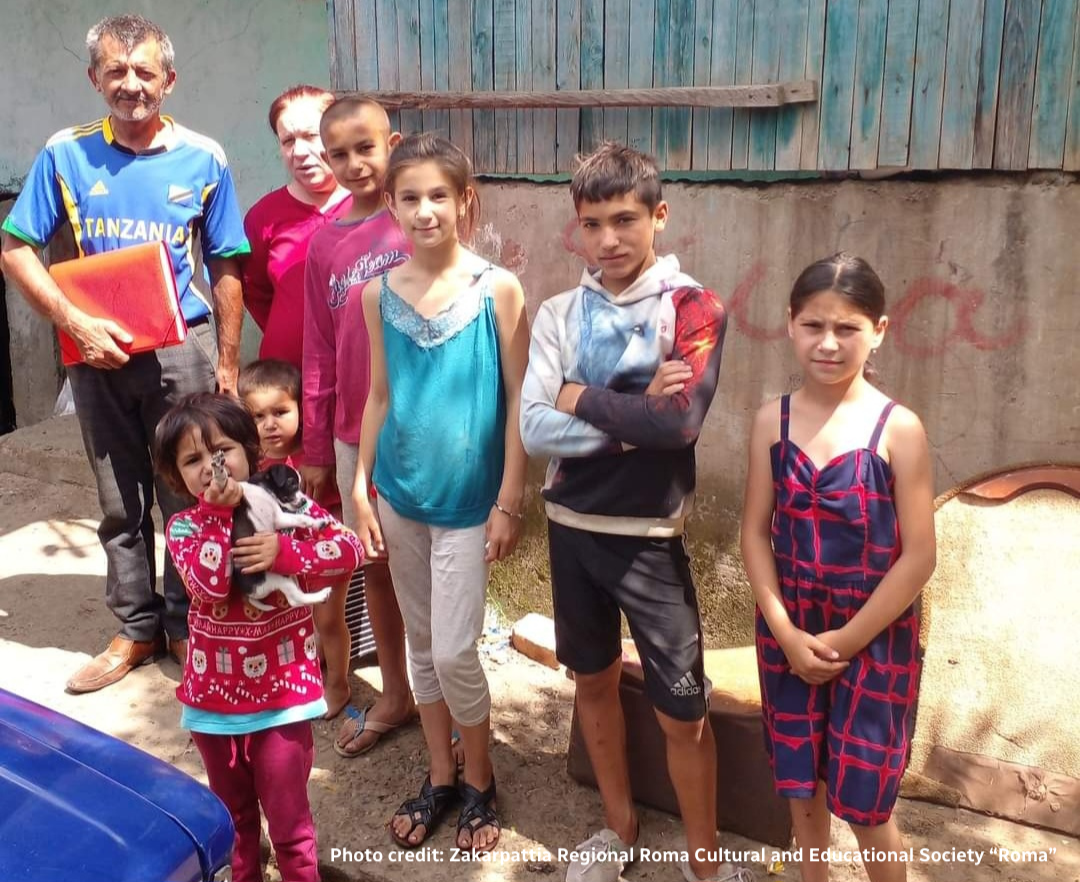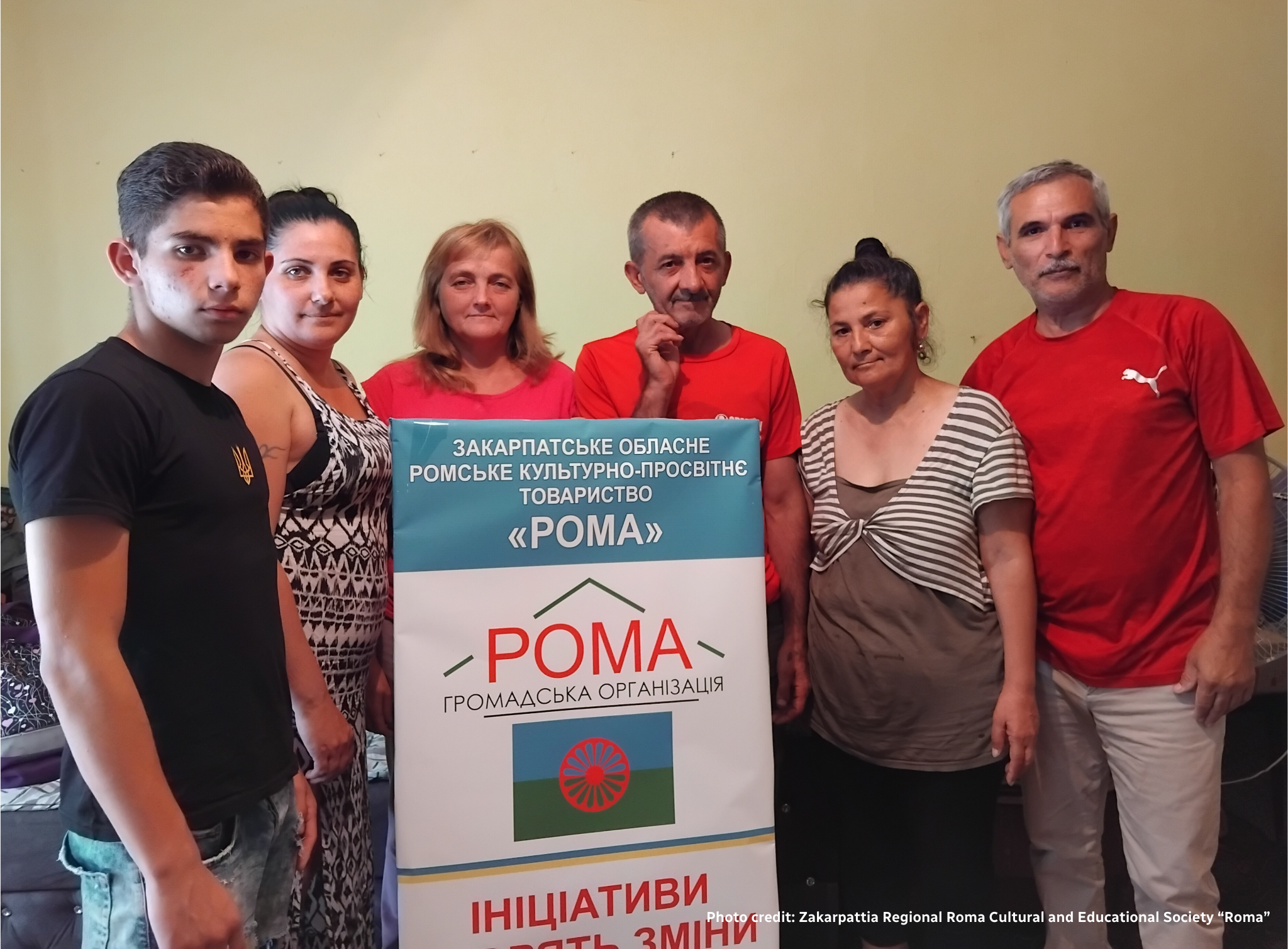The Dual Challenges for Ukraine’s Roma in Wartime
Approximately one-third of all Roma in Ukraine live in Zakarpattia Oblast in the westernmost part of the country. This ethnic group is diverse, with various subgroups of Zakarpattia Roma having different origins and speaking different languages. However, they all face similar issues regarding integration, legal status, access to education, and more. Additionally, since the onset of Russia’s invasion in 2022, Zakarpattia has become a primary evacuation destination for Roma from other regions of Ukraine. Local Roma organizations assist them in settling here and moving abroad. Vasyl Dyuri, one of the founders of the newly established organization called simply Roma, tells how the community, already vulnerable in peacetime, is navigating the additional challenges brought by the war.
What about the founding of Roma and the reasons behind its establishment after the invasion began?
The nongovernmental organization Romano-Drom has been operating in the Vynohradiv district of Zakarpattia since 2002, and I have been volunteering there all this time. The organization defends the rights of Roma as they constantly face discrimination. We also encourage them to learn, organizing Sunday schools or simply visiting their camps to help with whatever is needed.
But Roma live not only in Zakarpattia; they are in Kyiv, Chernihiv, Mykolaiv, and everywhere. When the invasion began, many woke up to the sound of explosions. Roma families are large, often with six or seven children, and many grabbed their kids and headed to the train station, and from there mainly to Zakarpattia.
So, some Romano-Drom volunteers decided to establish another organization to help them.
Did you assist with evacuations?
Initially, most people arrived here by rail, although it was difficult as the trains to the west were always packed. Later, we began driving once or twice a month to other regions to bring people back here. Now we do this less often because those who wanted to leave initially have already done so. However, some still come because Zakarpattia is much safer—no constant rocket attacks.
Mainly, we bring elderly people or women with children. I personally drove to pick them up, which was tough on my back. For example, in winter we went to pick up an 82-year-old Roma from Mykolaiv. He was originally from Zakarpattia and wanted to be here, at home, if something happened to him.
Do most evacuees stay in Zakarpattia or move on to European countries?
Those who came from eastern Ukraine mostly move on to Hungary or beyond. The border is very close, so we help them cross. I think few will return. But some Roma continue to live here.
Do you have any statistics on the number of evacuees?
I don’t have general statistics, but our organization has helped about 300 families.
How do you work with the families that stay in Zakarpattia?
First and foremost, we protect Roma rights. They live in difficult conditions. If you visit a Roma settlement in Zakarpattia, you might see up to 30 people living on 100 square meters of land. We try to highlight these issues.
In Vynohradiv, the local authorities allocated an entire street of land plots for Roma. But before building houses, conditions need to be created—there are no utilities, no proper roads. To build this road and provide water, funds are needed, so we continue negotiations with local authorities.
Meanwhile, we ensure Roma children get an education. Not all want to attend school due to the possibility of bullying, but we still promote the importance of studying. We encourage them to learn to read and write, and eventually to get a profession. We explain that they can do more than collect scrap metal or sell wildflowers—they can have jobs, such as being a hairdresser.

Our organization is officially called the Cultural and Educational Society Roma because this is a crucial area of our work.
Do you offer actual teaching?
Yes, we try to organize educational and recreational activities for children. It’s important not to waste time but to engage with them now so they can continue learning and get a profession later.
With donor help, we have five laptops. For Roma families, it’s expensive to have computers at home, but children need to know basic computer skills. So, we teach them what we know—how to work with documents, search for information, etc.
We also bought a TV with donor funds. We travel with it to communities, set it up in prayer houses where Roma usually gather, and hold movie screenings. We bring sweets for children and some art supplies.
After one visit, they already look forward to our next one. Some Roma in Zakarpattia only speak Hungarian, not even Romani. So, they delegate someone who knows Ukrainian to communicate with us. But to help them all learn the language we need additional resources.
What resources do you currently have? How many people are on your team?
We have about 15 regular volunteers, sometimes up to 25. When we ask locals for help, they usually don’t refuse. These include Roma and Ukrainians—we work together without making distinctions.

What are the priority needs or issues for Roma in the region?
Material issues are, of course, a concern. But I constantly emphasize the problem of education. We’re trying to hold some lessons and Sunday schools, but it would be better to establish something permanent. However, we all work as volunteers, and to involve specialist teachers we’d need to pay salaries, and we currently lack resources for that.
We also need a permanent lawyer. Roma often need consultations and help with documents. Hiring commercial lawyers is too expensive, so we help as best we can with documents and interaction with state authorities.
Do you provide medical assistance?
Yes, when we travel to settlements, we find out who needs what medicines or even sometimes bring a doctor with us.
We also received a grant for a two-year program to help “children of war”, meaning those who were children during the Second World War and survived the Holocaust. There are a few such elderly people left, so we regularly provide them with necessary medication and basic food packages.
Despite the long history of Roma in Zakarpattia, is discrimination still a significant issue?
Of course, it exists. I’ve faced discrimination myself. Sometimes, when you come to a farmer for work, they ask if you’re a “gypsy”. I used to lie that I was Armenian. But I did the job diligently, so the farmer had no more questions. Therefore, I believe educational work is essential not only with Roma but also with other nationalities that have prejudices against them.